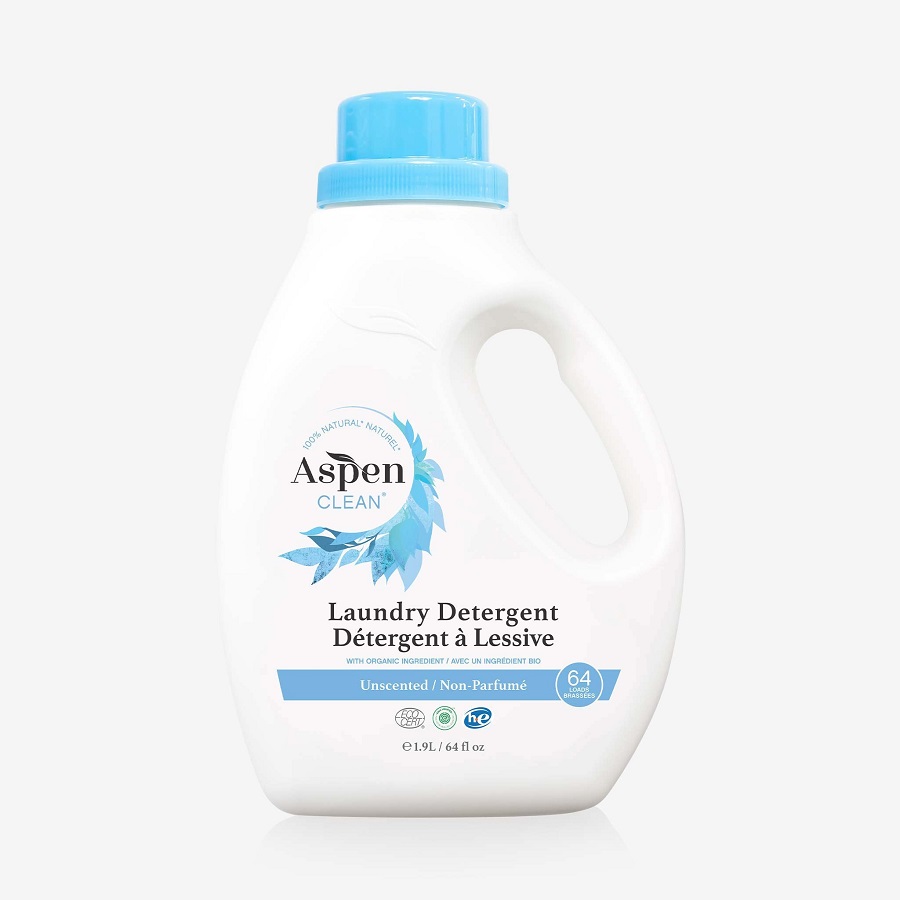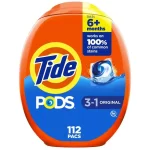Top Considerations When Choosing Laundry Detergent for Sensitive Skin
When seeking laundry detergent for sensitive skin, weigh several factors carefully. Here are the top considerations:
- Check for Dye-Free Options: Go for detergents free from artificial dyes, as they can cause skin irritation.
- Opt for Hypoallergenic Detergents: These detergents have fewer allergens and are less likely to cause reactions.
- Choose Fragrance-Free Products: Avoid detergents with fragrances that can trigger skin discomfort.
- Look for Mild Formulas: Milder detergents with fewer harsh chemicals are better suited for sensitive skin.
- Examine Ingredient Lists: Be diligent about checking ingredient lists for potential irritants.
- Consider Eco-Friendly Products: Some eco-friendly products may be less abrasive to the skin.
- Check for Dermatologist Approval: Detergents with dermatologist endorsement are generally safer for sensitive skin.
Choosing laundry detergent for sensitive skin requires thorough scrutiny of product attributes. Remember, the best detergent is one that cleans effectively without causing discomfort or allergic reactions.
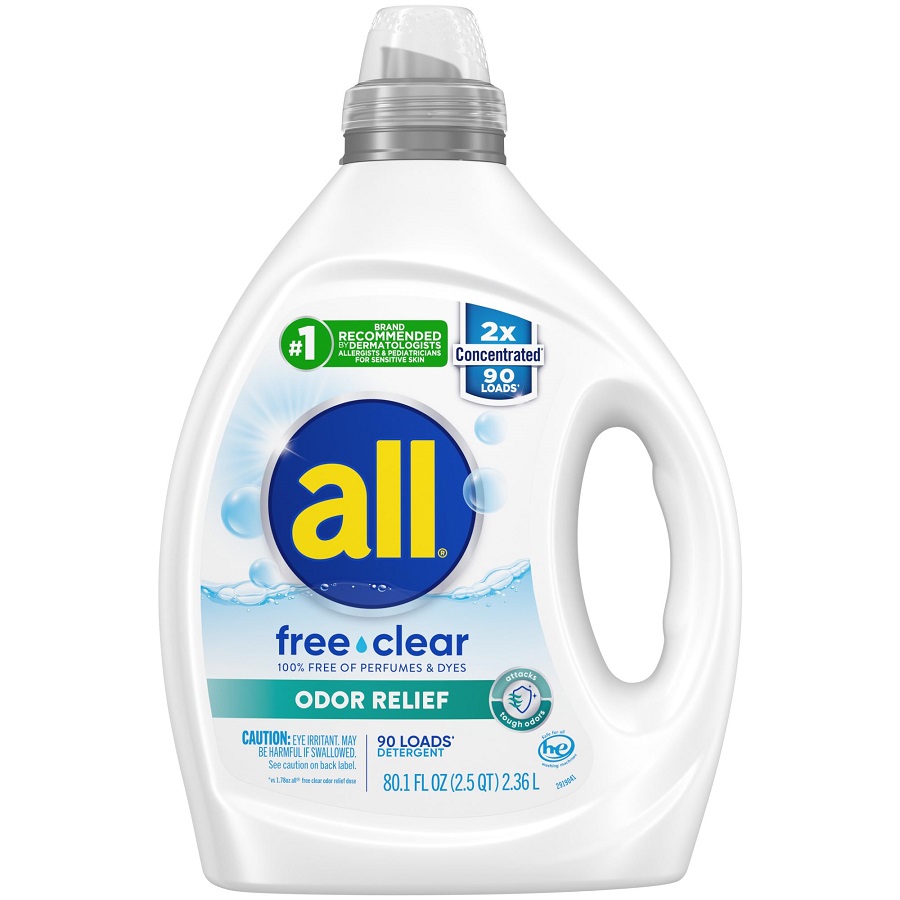
Symptoms and Causes of Skin Reactions to Detergents
Understanding Skin Reactions
Skin reactions can happen. Skin can get irritated or develop allergies. Irritant-contact dermatitis is a common reason. Chemicals in detergents can lead to these reactions.
Common Irritants in Detergents
What causes skin issues? Harsh chemicals, fragrances, and dyes often lead to problems. Choosing the right detergent is important. It helps avoid skin discomfort and reactions.
Sensitive Skin and Detergents
Sensitive skin needs special care. It reacts to allergens more easily. Some ingredients are too harsh. Avoid them to reduce the risk of skin problems.
Allergic Versus Irritant Reactions
Reactions can be allergic or irritant. Allergic reactions involve the immune system. Irritant reactions don’t. Both types can be uncomfortable. Knowing which one you have helps choose products better.
Role of Fragrances and Preservatives
Fragrances can lead to discomfort. Preservatives can too. Even if they are natural, they can cause issues. Choosing products without these can help reduce risks.
The Importance of Detergent Ingredients
Ingredients matter. They can be the difference between comfort and irritation. Check labels before buying. Choose detergents with fewer irritants.
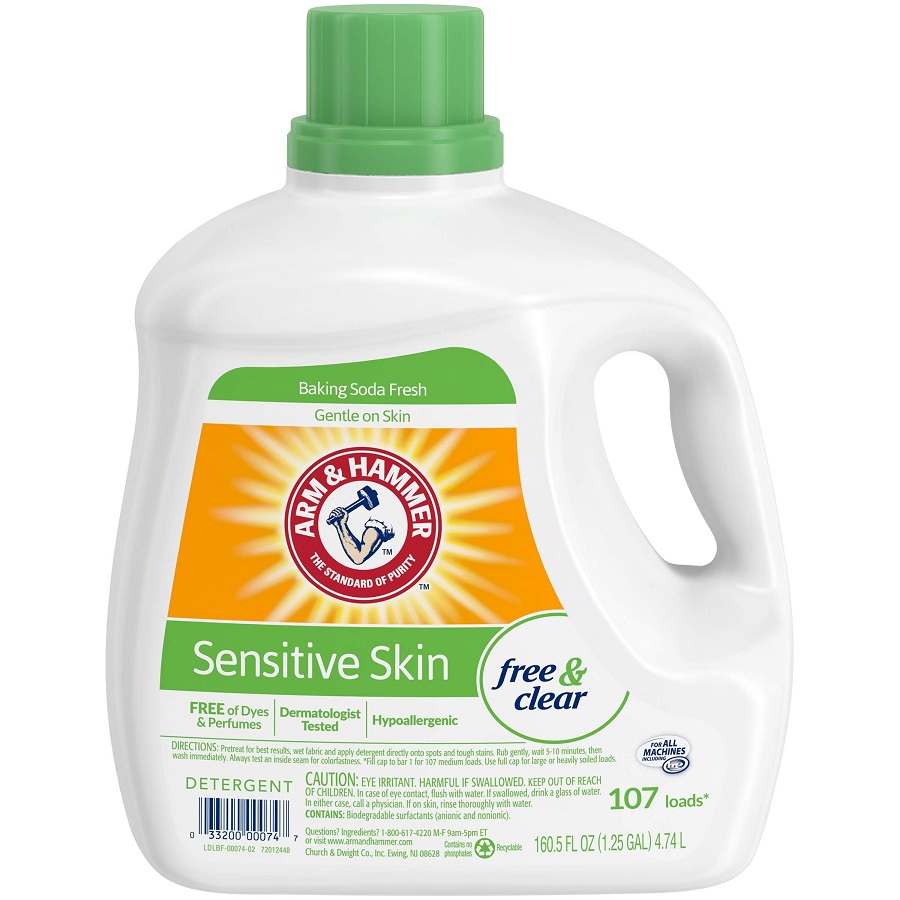
Best Practices for Laundry Care with Sensitive Skin
For those with sensitive skin, laundry care requires additional consideration to avoid irritation. Here are some best practices that should be followed:
- Double Rinse Clothes: Extra rinsing can remove lingering detergent residues that may irritate the skin.
- Use Appropriate Wash Cycles: Select the gentle or hand-wash cycle to prevent rough agitation of clothes.
- Keep Your Washer Clean: Regularly clean your washing machine to eliminate detergent build-up that may cause skin reactions.
- Measure Detergent Carefully: Use the recommended amount of detergent to prevent excessive residuals on clothes.
- Dry Clothes Naturally: If possible, air-dry clothes to avoid harsh fabric softeners that can cause irritation.
- Choose The Right Water Temperature: Hot water can help in removing irritants but remember to check the care labels on clothing first.
- Wear Gloves When Handling Detergent: Direct contact with laundry detergents can trigger skin irritation.
- Spot Test New Products: Before fully adopting a new detergent, test it on a small article of clothing to monitor potential skin reactions.
By implementing these simple steps, you can help ensure that laundry care doesn’t aggravate sensitive skin conditions.
The Role of Detergent Ingredients in Skin Irritation
Detergent ingredients play a key role in skin irritation. The harsh chemicals often found in detergents can be the main culprits behind irritant-contact dermatitis, which can provoke reactions such as redness, itching, and rashes. Unlike allergic reactions, which involve an immune response, irritant reactions directly damage skin cells. To minimize the risk of irritation, it’s important to understand which ingredients are harsh on the skin.
Common Irritants to Look Out For
Typical irritants include fragrances, dyes, and certain preservatives. Fragrances, whether synthetic or natural, can cause reactions even in small amounts. Brighteners and phosphate-based ingredients might make clothes look cleaner but can be tough on sensitive skin. Enzymes are great at breaking down stains but can also irritate when left on fabrics after washing.
Choosing Safer Alternatives
Opt for products labeled as hypoallergenic or fragrance-free, as these are often formulated with milder ingredients. Moreover, eco-friendly detergents may use plant-derived ingredients that are perceived as gentler, though this is not always the case. Reading labels for certifications and specific claims about skin sensitivity can guide better choices.
Not all products list all ingredients, making it tricky to identify potential irritants. Look for transparency in labeling and avoid those with vague claims like ‘natural’ or ‘gentle’ without details. Trustworthy brands will clearly state if they are free from common irritants like dyes and perfumes.
Understanding the impact of detergent ingredients is essential for anyone with sensitive skin. By being vigilant about the products we choose and knowing which ingredients to avoid, we can reduce the occurrence of skin irritation from laundry care.
Top Rated Detergents for Front Loaders and Skin Sensitivity
Finding suitable detergents for front loaders and sensitive skin is crucial. Here’s our top picks:
- Omo Ultimate Powder: This product earned high marks, scoring an 86% CHOICE Expert Rating. Yet, it’s pricey at $1.23 per wash.
- Coles Ultra Concentrate Laundry Capsules: Affordable at 40 cents per wash and high performing. Ideal for budget-conscious shoppers.
- Woolworths Clean Ultimate Sensitive Laundry Capsules: At 31 cents per wash, these capsules are a wallet-friendly and skin-friendly choice.
- Aldi Laundrite Laundry Powder: This economical option scored a respectable 79% and is gentle on the pocket.
- Biozet Attack Power Capsule + Eliminator 8 in 1 Clean: With an 80% rating, this one is a top performer for front loaders.
When choosing, focus on detergents that are gentle on sensitive skin. Look for hypoallergenic options and those without harsh ingredients. Remember, costly doesn’t always mean better for sensitive skin. Affordable detergents can also provide excellent results without causing irritation.
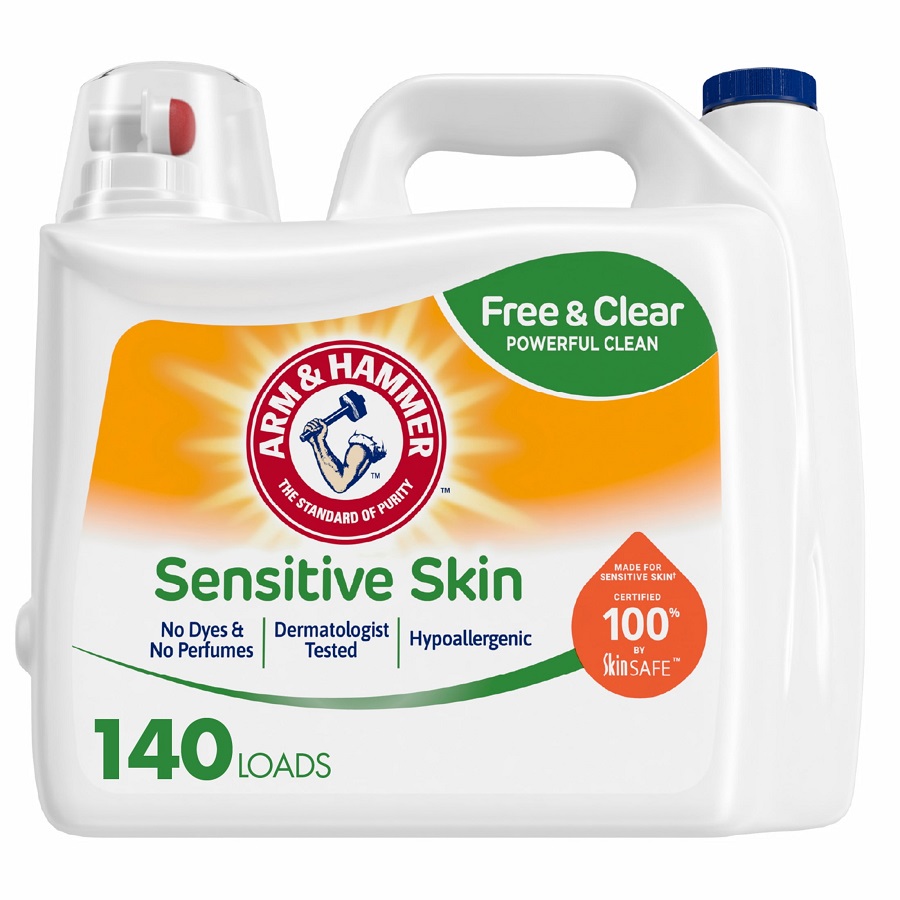
Common Pitfalls: Detergents to Avoid for Sensitive Skin
When managing sensitive skin, some detergents can do more harm than good. Here are detergents that might be harsh on sensitive skin:
- Look Out for High Fragrance Detergents: Even if they smell great, they can irritate the skin.
- Steer Clear of Dyes: Colorful detergents might look appealing but could cause reactions.
- Avoid Certain Preservatives: These can lead to skin discomfort. Choose preservative-free options when possible.
- Be Wary of Brighteners: They make clothes look whiter but may not be suitable for your skin.
- Check for Enzymes: While they’re good at stain removal, they can irritate sensitive skin.
In terms of products to pass up, consider avoiding these based on CHOICE’s reviews:
- Aldi Laundrite Laundry Liquid scored only 50%, being no better than water.
- Caution with certain detergent sheets and capsules as they might show low effectiveness.
It’s key to remember that more expensive doesn’t always equal better for sensitive skin. Low-cost detergents can be effective without causing skin issues. Always read labels carefully and opt for hypoallergenic or dermatologist-recommended products whenever possible.
The Truth About Fragrance-Free and Eco-Friendly Detergent Claims
Choosing the right laundry detergent is vital for sensitive skin. Claims like ‘fragrance-free’ and ‘eco-friendly’ may sway buyers, but what do they really mean? Let’s delve into the truth.
What Does Fragrance-Free Mean?
‘Fragrance-free’ should mean a product contains no perfumes. Yet, sometimes they still have masking scents. These can still irritate sensitive skin. So, always check the ingredient list. If unsure, pick products with a clear ‘no fragrance’ label.
The Reality of Eco-Friendly Detergents
Eco-friendly signs suggest a product is kinder to the environment. This doesn’t mean it’s milder on the skin, though. These detergents might still have allergens that affect sensitive skin. Watch out for natural fragrances too. They can cause allergic reactions just like synthetic ones.
Decoding Detergent Labels
It’s hard to identify irritants without a full ingredient list. Not all brands disclose every ingredient. Choose options that list all contents clearly. Claims of ‘natural’ should be backed by specifics. Without details, ‘gentle’ or ‘natural’ don’t guarantee safety for sensitive skin.
The Best Approach for Sensitive Skin
For sensitive skin, seek detergents approved by reputable sources. Look for ones that have been tested and recommended for skin sensitivity. Weigh up cost, efficiency, and skin impact. The best choice balances all three without compromising on your skin’s health.
Navigating detergent claims requires a discerning eye. Stick with trusted, transparent brands. They often provide the safest options for those with sensitive skin concerns.
Expert Advice: How to Safely Test New Laundry Products on Sensitive Skin
Testing new laundry products on sensitive skin requires care. Here’s a safe testing method:
- Start with a Patch Test: Choose a small area of skin for testing. Apply a tiny amount of the detergent, and wait 24 hours.
- Use on a Small Item: Wash a single garment with the new product. Wear it for a day to see how your skin responds.
- Evaluate Results: Notice any redness, itching, or discomfort. If symptoms appear, discontinue use.
- Consult Dermatologist: Talk to your skin doctor. They can help understand reactions and suggest alternatives.
- Go Slow with Changes: If no reaction occurs, slowly introduce the detergent to more washes.
Listen to your body. It tells you what’s safe for your skin.
